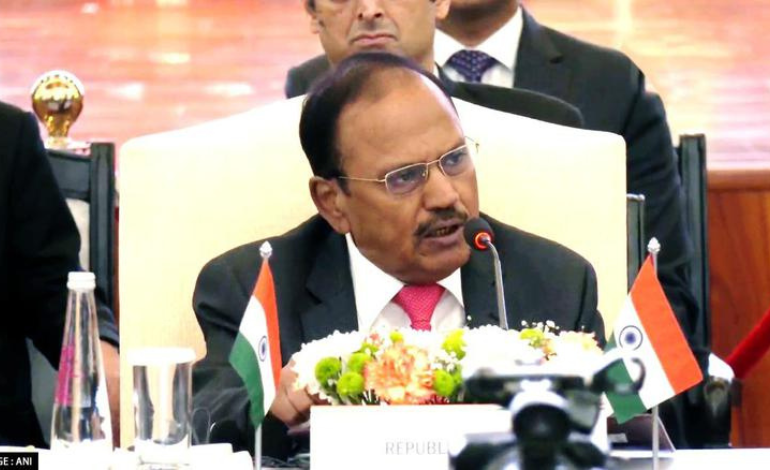
New Delhi, December 6: On Tuesday, the National Security Advisors of India and Central Asian nations agreed that the rise of terrorist propaganda, recruiting, and fundraising initiatives had major security consequences that necessitate a joint and coordinated response.
National Security Advisors/Secretaries of Security Councils from India, Kazakhstan, Kyrgyzstan, Tajikistan, and Uzbekistan convened here to address regional security challenges. Turkmenistan was represented at New Delhi by its Ambassador.
The joint communique issued after the meeting stated that the NSAs "agreed that the expansion of terrorist propaganda, recruitment and fundraising efforts have serious security implications for the region and, therefore, a collective and coordinated response is essential."
The participants agreed that the misuse of new and emerging technologies, the trafficking of arms and drugs, the use of terrorist proxies for cross-border terrorism, the misuse of cyberspace to spread disinformation, and the use of unmanned aerial systems present new challenges in counterterrorism efforts and necessitate collective action.
They reaffirmed their firm support for a peaceful, stable, and secure Afghanistan, emphasising respect for the country's sovereignty, unity, and territorial integrity, and advocating non-interference in its internal affairs.
The NSAs emphasised that the Afghan territory should not be used for terrorist sheltering, training, planning, or financing, and reaffirmed the importance of UN Security Council Resolution 2593 (2021), which states that no terrorist organisation should be given sanctuary or allowed to use the Afghan territory.
The NSAs "condemned in the strongest terms all forms and manifestations of terrorism and stressed the need to work together to combat this danger," according to the joint communiqué. The NSAs highlighted that increased connectivity may be a force multiplier for improving trade and business, as well as tighter ties between India and Central Asian countries, and hence "required urgent consideration."
According to the joint communiqué, they agreed that connectivity efforts should be built on the values of openness, wide involvement, local interests, financial sustainability, and respect for all nations' sovereignty and territorial integrity.
The NSAs also emphasised the critical role that Chabahar Port played during the humanitarian crisis in Afghanistan, as well as its enormous potential for enhancing trade and connectivity, as well as the Central Asian countries' logistics infrastructure in delivering humanitarian goods to the Afghan people.
They also addressed the expansion of commerce between India and Central Asian nations via the Shaheed Baheshti Terminal, Chabahar Port, and the future development of this transport route. The delegates agreed with India's proposal to integrate the Chabahar port under the INSTC framework.
The meeting of the NSAs stems from an agreement struck during the inaugural India-Central Asia Summit on January 27, this year, in which the countries committed to arrange regular meetings of Security Council Secretaries to address regional security challenges.